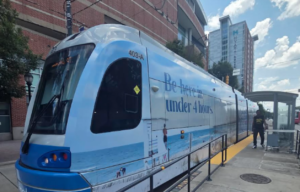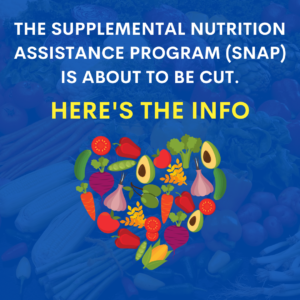
Every few years, Charlotte’s political and business elite return with the same polished pitch.
"This time it will be different," they say.
But for working families, it never is.
Now they want your vote for a new 1% transit tax increase. At first glance, they make it sound harmless; just a penny! But look closer:
The Truth Behind the Numbers
It’s a 14% increase in the overall sales tax rate
It triples the current transit tax burden
It applies across the board: from baby formula to school supplies, diapers, medicine, and clothing
For families living paycheck to paycheck, that’s not just a penny. It’s another squeeze on budgets already stretched thin by rising rents, gas, groceries, and utility costs.
And while Uptown suits may not flinch, real working people will feel it with every purchase.
Same Promise, Same Playbook
Let’s be honest. The “inclusive growth” line isn’t new.
We’ve heard it from:
-
Polished politicians on city council
-
Well-dressed chamber executives
-
Think tank consultants who never take the bus
They promise mobility, opportunity, transformation. But here’s what we’ve actually gotten:
-
New rail lines that serve the wealthy first
-
Development deals that inflate Uptown while pushing families further out
-
Tax policies that burden the working class while corporations cash in on incentives
Each time, the result is the same:
Corporate convenience rises. Working families are left behind.
What the Video Shows
If you haven’t watched This Time It Will Be Different, you need to.
It lays bare the truth:
-
Recycled rhetoric dressed up as new vision
-
Regressive taxation sold as fairness
-
Real harm to those who can least afford more pressure
What Charlotte needs is real investment. Yes, in transit. Yes, in infrastructure.
But not funded by taxing the families who’ve already paid the price—over and over again.
Don’t Be Fooled. Don’t Be Used.
They say it’s just a penny.
They say this time is different.
They always do.
But you’ve seen the pattern. You live with the consequences.
It’s time to break the cycle.
It’s time to demand a plan that actually serves working people, not just big business and backroom deals.
Vote NO this November.
Watch the video. Share the truth.
Let’s stop pretending things will be different, until they actually are.

Mecklenburg County voters will decide in November whether to increase the sales tax by one cent, to 8.25%, to pay for a multibillion-dollar roads and transit plan. With three months until the referendum, the tax has so far produced some unusual political alliances.
WFAE Morning Edition host Marshall Terry spoke with WFAE’s Steve Harrison about who is and isn’t supporting the tax.
Marshall Terry: Steve, before we get to who is on which team, tell me briefly about the plan.
Steve Harrison: The plan calls for 40% of new sales tax money to go for roads. Forty percent would go to rail transit, most notably the Red Line commuter rail line to Lake Norman. And 20% would go to buses and a new on-demand service called “microtransit,” which is like Uber.
The city of Charlotte has estimated the tax would cost the average household in the county about $240 a year. The city says low-income residents would pay about $130 a year,
Terry: OK, let’s start with the people who are in support of the tax. Who’s on that team?
Harrison: Marshall, last week Mecklenburg commissioners voted 8-1 to place the tax on the November ballot, and supporters packed the Government center. Many were wearing white T-shirts that said “YES FOR MECK.”
And they came from a pretty wide cross section of the county: you had activists, political leaders, religious leaders and people from the nonprofit world.
Here’s Sherry Chisholm from the group Leading on Opportunity.
“Tonight, I ask you to let voters decide whether they want to invest just a little more at the register to build a region where their children’s children thrive, where we can continue improving.”

CHARLOTTE, N.C. — Voters in Charlotte heard directly from candidates running for mayor, city council at-large, and several district seats in the upcoming municipal primary.
The Redress Movement, Action NC and ONE Meck hosted a public forum at First United Methodist Church in Uptown on Tuesday evening.
The discussion centered on some of the city’s most pressing issues, including affordable housing, neighborhood justice, and the future of transit.
The event featured both a live question-and-answer session and printed responses to key housing and transportation questions for attendees to review.
The forum was moderated by Justin Perry, co-founder of ONE Meck, and Greg Jarrell of the Redress Movement.
Perry said local primaries are critical in shaping the city’s future, especially when it comes to addressing Charlotte’s decades-long affordable housing crisis.
Jarrell added that while national politics often dominate headlines, local leaders have the most direct impact on residents’ daily lives.
Protestors Speak Out Against Fayetteville Youth Violence Curfew
The Fayetteville City Council votes on a curfew Monday night, which could charge teens with misdemeanors and fine parents $100.
Reporter : Willie Daniely
Reporter : Julian Grace
Web Editor : Joseph Ochoa
Liberal Protesters Arrested In Capitol Over Debt Ceiling Demonstration
Summary: Action NC members joined the Center For Popular Democracy (CPD) on Capitol Hill to protest potential cuts to essential programs like Medicaid and Food Stamps as well as climate change funding. After meeting with members of congress urging them to fight against the proposed Debt Ceiling deal, the activists sat in the Cannon Rotunda chanting "Default equals death," "No cuts to Medicaid," and "No cuts to climate." The Capitol Police arrested 12 people. Both the Washington Examiner and Fox News covered the action.
A Grandma's Wish To Survive

“The best way to honor mothers this Mother’s Day is for Congress to do what’s right: pay the nation’s bills by raising the borrowing limit to assure a stable economy and avoid default,” writes Carrol Olinger, a Cumberland County resident.
This Mother’s Day, I’m celebrating being the proud mother of four daughters, one son, and five grandchildren. My children are my pride and joy, and throughout my life they have been my top priority. Today, even as a retired educator, and seasoned community leader, I still worry more about my children than anything else in the world.
And, unfortunately, I have good reason to worry given the current debate about national default in Congress. Our economic future, our healthcare, education for our children–all of it is at risk because of the upside-down priorities of many elected leaders that are putting my children–and everyone else’s–in harm’s way.
For most of us, paying the bills comes first. It comes before luxuries, before upgrades, before whims–that’s what I taught my children.
But some leaders in Congress clearly don’t agree with me.
Speaker Kevin McCarthy’s default plan would only enable the United States to keep paying its debts on time if Congress also slashes spending on everything from veterans’ health to public safety and education. If Democrats don’t agree to these cuts, Speaker McCarthy and Republicans in Congress will not agree on a lift the borrowing limit so the United States can keep paying bills on time and avoid default.
Default means that, as early as June 1st, the federal government will no longer be able to pay on obligations it owes everyone from foreign governments to Medicare providers, causing widespread panic in the economy, hastening recession, and undermining the credit of our government abroad.
McCarthy has the wrong priorities: instead of working with the President and other leaders in Congress on passing a clean debt ceiling bill that will keep our country stable and protect us from economic harm–as Congress has done over 70 times in the last 60 years–he’s playing chicken with the economy.
A grandma’s wish to survive is turning into a nightmare! I shouldn’t have to wish for basic needs for myself, my grandkids and the American people.
The GOP bill that McCarthy already passed in the House proposes cuts in everything from Medicaid, Meals on Wheels, and education funding to rail inspections, while at the same time also watering down tax enforcement for families making $400,000 or more. That means that wealthy households will continue to pay less in taxes than many middle-class families do while the rest of us face higher costs in healthcare, housing, food, and other expenses because of the cuts to these programs.
People like my daughter, who has been unable to get steady health coverage for years, may lose what access to Medicaid she has because of these cuts. So could many others, including low-wage workers who can’t get affordable coverage on the job, veterans, kids and more. Another cause for worry: millions of people are already losing coverage and losing food stamps because of the end of the COVID-19 public health emergency—this could make everything worse.
In North Carolina alone, an estimated 54,000 women, infants, and children would lose vital nutrition assistance through the Special Supplemental Nutrition Program for Women, Infants, and Children (WIC) and 16,700 families would lose access to rental assistance, according to a federal analysis. As many as 284,200 veterans could lose outpatient visits, leaving them unable to get appointments for care like wellness visits, mental health services, and substance disorder treatment. Cuts to basics like healthcare, education and housing should be the last thing any mom in America should have to worry about, on Mother’s Day, or any other time.
The best way to honor mothers this Mother’s Day is for Congress to do what’s right: pay the nation’s bills by raising the borrowing limit to assure a stable economy and avoid default. Then, rather than arguing about what’s going to be cut, start making the rich and corporations pay what they owe, at the minimum their fair share!
NC SNAP program

Here's what's happening: The Supplemental Nutrition Assistance Program (SNAP) is about to be cut.
In response to the ongoing COVID-19 outbreak, Congress authorized states to use temporary SNAP emergency allotments (EAs) in March 2020. Additional benefits from SNAP during the pandemic were very important for many people to meet their families’ nutritional needs.
But for millions of families, the deadline for SNAP EAs just ended this month in most U.S. states and territories. Because of this change, when the EAS runs out, the average SNAP benefits will drop to just $6 per day per person.
At the minimum benefit level, older people will be hurt the most because their monthly SNAP benefits will go from $281 to $23, but everyone who gets SNAP will be affected. Families need a stronger SNAP program because costs for food, housing, transportation, childcare, etc., are increasing while SNAP extensions are ending.
In the past few months, the Republican-controlled US House of Representatives has made several threats against SNAP, such as calling for stricter work requirements that would make it harder for hungry families to get the food they need (note: SNAP already has a stringent work requirement for many individuals). The US House GOP also threatens to cut benefits even more drastically.
Here in NC, our emergency SNAP benefits ended in February. If your own SNAP benefits are going to be cut, reporting changes might help you get more food stamps. Click on this link to learn more about what reporting changes could be helpful to you.
https://legalaidnc.org/extra-food-stamps-are-ending/
Despite the EA cuts, Pandemic-EBT benefits in North Carolina will continue for the 2022-23 school year until the federal Public Health Emergency ends on May 11, 2023.
This year, Congress will pass a new Farm Bill. This is the main legislation that says how SNAP works and what benefits will be. We must ensure that our leaders take advantage of this chance to assist struggling families and give them the help they need. We must also ensure that our elected leaders know that SNAP benefits the economy. For every dollar spent on SNAP, between $1.50 and $1.80 is spent in the economy.
To find your local DHHS office, where you can learn more about your benefits and the possibility of increasing them, click the first link. For information on food bank resources, click on the second link.
https://www.ncdhhs.gov/divisions/social-services/local-dss-directory
https://www.needhelppayingbills.com/html/north_carolina_food_banks.html
The Supreme Court signals that a terrifying attack on voting rights will vanish — for now

Moore v. Harper endangers elections in the United States. Now it seems likely to disappear.
"Moore v. Harper, a lawsuit the Supreme Court heard last December, poses the biggest threat to US democracy since the January 6 attack on the US Capitol — although it’s worth noting that even some of the Court’s more conservative members seemed to recoil at some of the case’s implications when they heard oral arguments in Moore in December.
On Thursday, the justices signaled that they are likely to take an off-ramp from this case. The Court released a brief, one-paragraph order indicating that this case may simply disappear." - Vox
International Women's Day

March 8, 2023 marks International Women’s Day, a chance to celebrate women everywhere and be reminded of the inequalities women face everyday.
Here are 8 ways you can empower women:
1 – PROVIDE FINANCIAL SOLUTIONS
2 – TEACH VOCATIONAL AND BUSINESS SKILLS
3 – INCREASE INCOMES AND SAVINGS
4 – BUILD SELF-ESTEEM AND CONFIDENCE
5 – IMPACT HEALTH
6 – BUILD SOCIAL NETWORKS
7 – CREATE PUBLIC LEADERS
8 – TELL THE WOMEN IN YOUR LIFE THAT YOU CARE
Through meaningful collaboration, we can help women advance and unleash the limitless potential they offer to economies throughout the world.
#womensinternationalday #happywomensinternationalday #supportwomen #empowerwomen #womendeserveequalpay #womensequality #actionnc #rageactionnc #rage